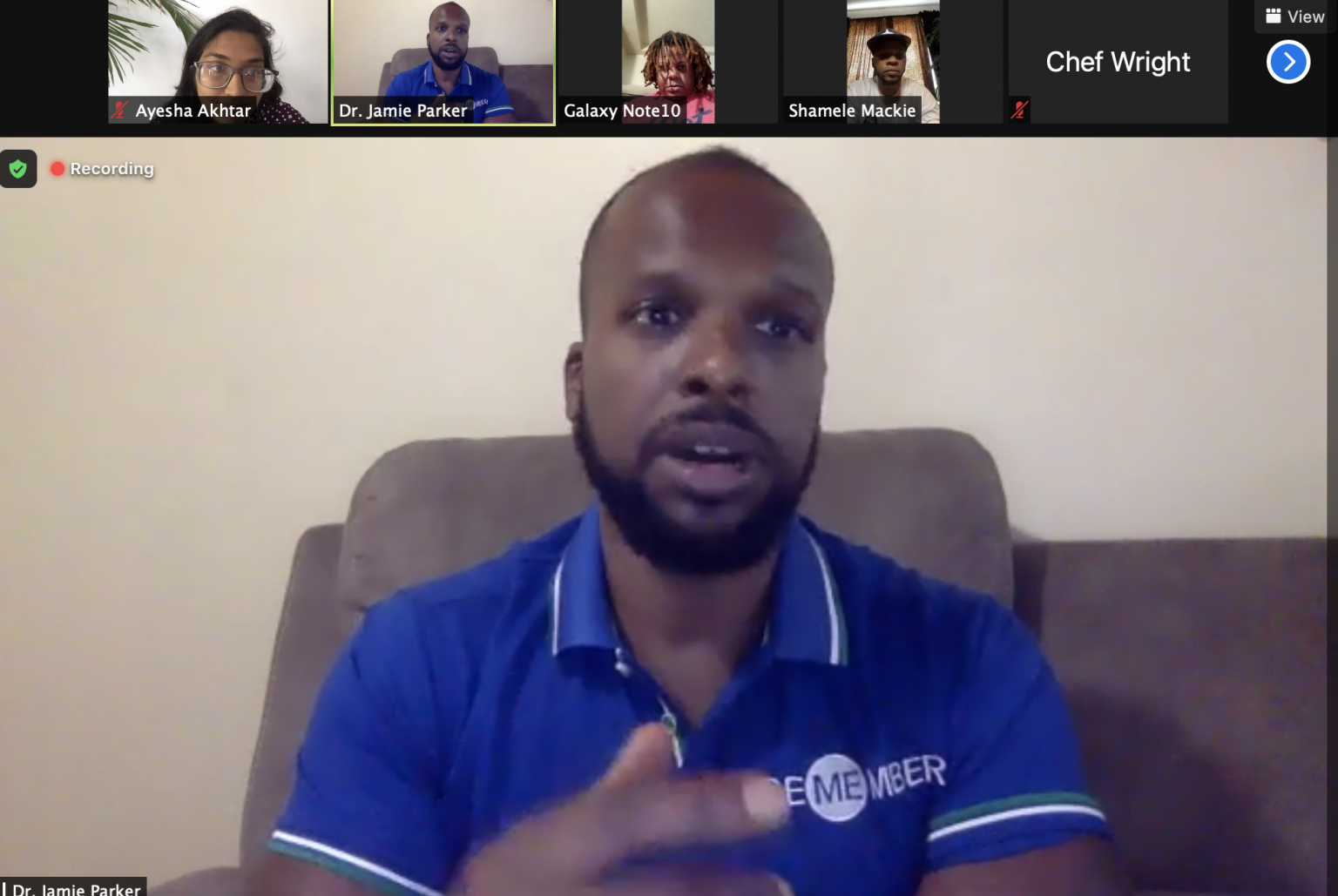This summer, junior high and high school students from Fordham’s Science and Technology Entry Program (STEP) are challenging themselves creatively in Jamie Parker’s virtual Hip-Hop Biology Course. The class introduces students to careers in STEM and explores the intersection of art, science, and culture.
“Hip-Hop Biology is a class created to keep students engaged in STEM while embracing their love for hip-hop,” said Parker, an instructor at Fordham, who started using hip-hop as a teaching tool in his Fordham college-level biology classes in 2018.
One technique that Parker uses to engage his students is battle rap. Students come up with raps about course material and then compete against each other. To win a battle, Parker said, “One must have a semi-complex rhythmic flow, interesting content, and understand the culture of the audience they will be performing. Most importantly, the battle must be something the audience can react to and truly feel, even if it’s a personal story or a social issue.”
Students learn more than biology from battle rap, said Parker. Competing directly against another individual encourages students to perform better than they would if they were performing independently. The student becomes better at communicating, performing, and interacting with an audience. They also learn self-control by not reacting if someone insults them in front of others. Another critical piece is the mental health aspect, he said. Artists can discuss trauma in their lives and bring personal experience to their rap.
The class is a perfect fit for STEP, Parker said, because it gets young people excited about college. STEP is a New York state academic enrichment program designed to prepare underrepresented minority and economically disadvantaged junior high and high school students for college and careers in STEM fields (science, technology, engineering, and math) fields, health careers, and licensed professions, like accounting, law, psychology, social work among other licensed fields. Fordham’s STEP program normally takes place at the Rose Hill and Lincoln Center campuses, with some activities also taking place at local school and partner sites. The program continued throughout the pandemic when students attended virtually.
Camila Diaz Rodriguez, a student from Cathedral High School in Manhattan, called the Hip-Hop Biology course “a different experience.”
“Writing about STEM, It does help us bring together ideas and speak about topics that usually people don’t pay mind to, for example, our [rap]was on global warming,” she said.
Parker invited guest speakers to the course, like Papoose, a prolific rapper known for spreading knowledge through his rhymes. In a Q&A, the middle school and high school STEP students were able to ask Papoose advice on how to memorize rhymes and discuss STEM.
“You’ve got to know how to count your bars. You got 16 bars. Sometimes you want to say so much. And that’s the challenge for artists. How can you break it down and summarize it into 16 bars or sometimes eight bars?” He said, ” That can make you a better rapper because now, when you’re creating your rap, you’re calculating what you’re saying,” he told the students.
Parker said using hip-hop makes students feel like they are a part of something familiar. “We want this to be a space where people feel welcome, for them to be a part of it and want to be a part of it. Sometimes in these spaces, you don’t always see individuals who look or sound like you, and so if we can at least have our own sound from our own voice and sometimes bring our own people into this space, maybe we’ll feel a little more comfortable.”

